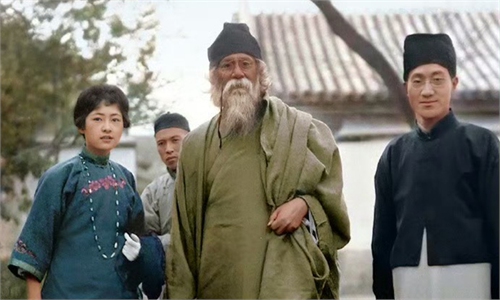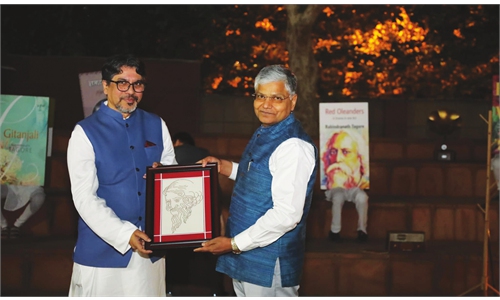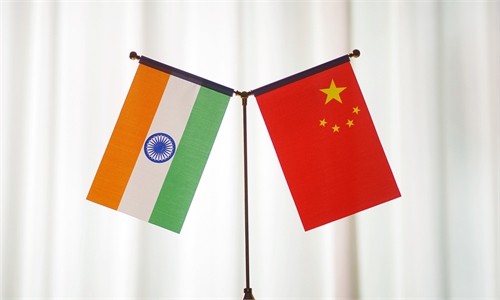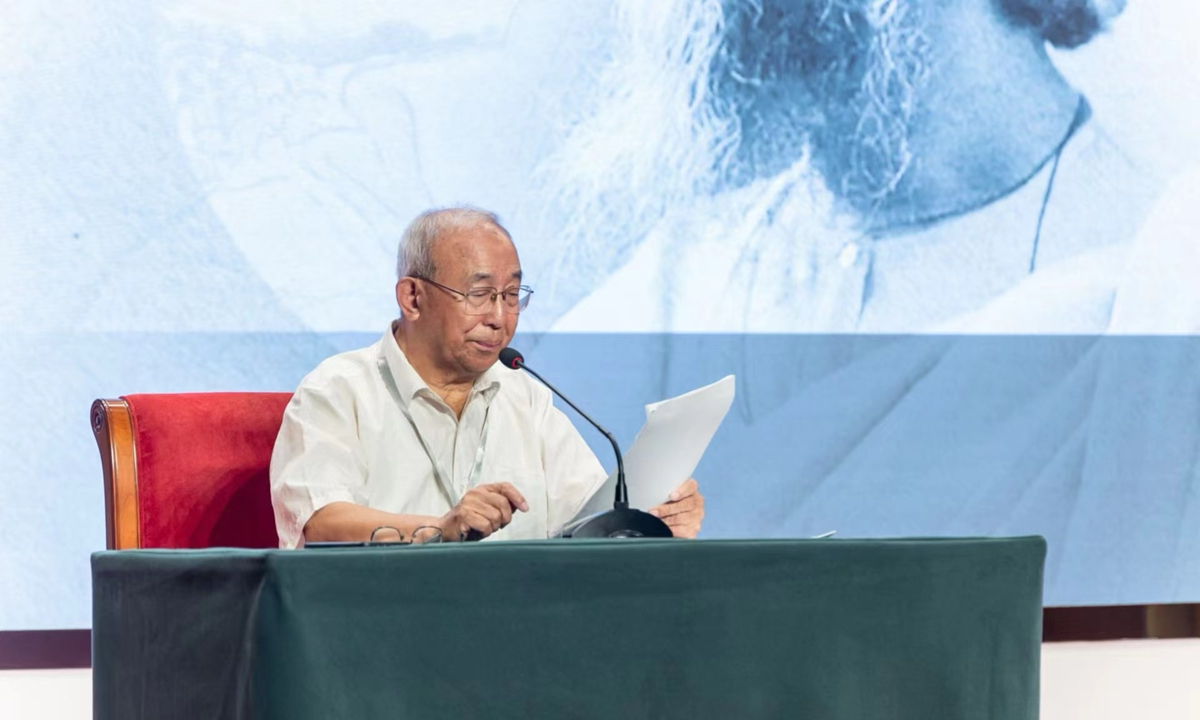
Dong Youchen, professor and president of the International Congress for Bengali Studies and editor-in-chief of the Complete Works of Tagore, delivers a keynote speech at the commemoration event "100th Anniversary of Tagore's Visit to China" at the Shanxi Jinshang Cultural Museum in Taiyuan, North China's Shanxi Province, on August 3, 2024. Photos: Courtesy of Shanxi Jinshang Cultural Museum
Attending a series of activities on Tagore's visit in Shanxi, Chinese scholars said that Tagore, a representative of Chinese-Indian civilization exchanges, has provided a feast of literary and artistic dialogue that carries an emotional and spiritual resonance between the Chinese and Indian peoples.Liu Yuwei, director of the Taiyuan Culture Relics Bureau, said that the event is meant to promote cultural exchanges and mutual learning between China and India and comprehensively improve the level of cultural heritage protection.
"It is hoped that through this series of activities, we will further strengthen mutual learning between Chinese and Indian civilizations, deepen academic exchanges, enhance understanding and mutual trust," Liu said.
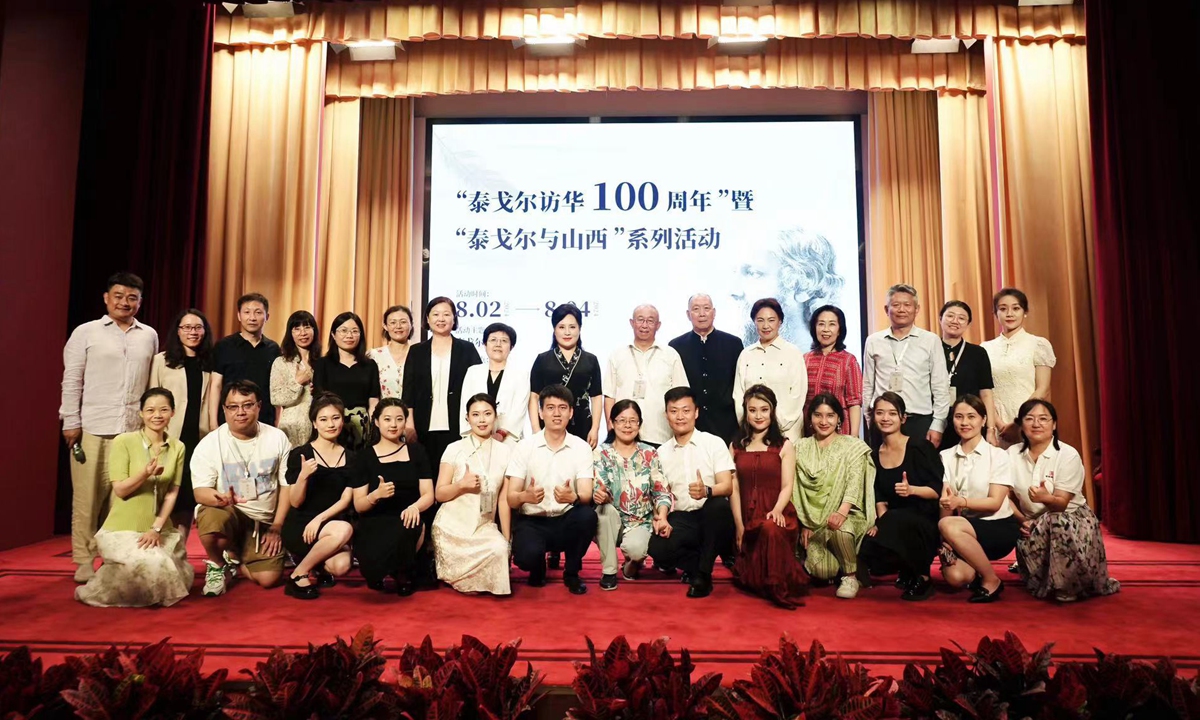
Delegates pose for a group photo at the commemoration event "100th Anniversary of Tagore's Visit to China" at the Shanxi Jinshang Cultural Museum in Taiyuan, North China's Shanxi Province, on August 3, 2024.
According to the Taiyuan City Chronicle, by the end of the tour of a "visiting delegation of international universities" led by Tagore in Beijing in April 1924, the group's plan was to go to Dalian, Northeast China's Liaoning Province, then to Japan. However, when he learned about the rural construction projects in Taiyuan, Tagore's interest was aroused and the group decided to make a detour to Shanxi.On May 23, 1924, Tagore was invited to a welcome meeting in a hall at Wenying Lake Park in Taiyuan. Thousands of people from all walks of life, including college and middle school students attended the meeting. It was so crowded that there was almost no room to stand and by the end, the door to the hall and the window glass were damaged due to overcrowding.
During the meeting, Tagore delivered a speech, expressing his gratitude to the people in Taiyuan for their hospitality.
"China and India are both ancient countries of the East. And the cultural relationship between China and India also started very early, so when I came to China, it was like I was going to a second home," he said.
Tagore also compared "locusts" to imperialism, and deeply criticized imperialism for oppressing China and India and other weak and small countries through forced "Western material civilization," "making the most beautiful world extremely ugly and the most harmonious world extremely tense."
"All those who have been conquered, oppressed, and lost their lives should unite to restore the originally beautiful world to a harmonious and life-filled world, and to take back our lives," he said.
Tagore's speech won the applause of the audience.
On May 24, 1924, Tagore visited the Jinci Temple, one of the top attractions in Taiyuan, which used to be the ancestral temple of kings of the Jin State during the Western Zhou Dynasty (1046 BC-771 BC) and the Spring and Autumn Period (770 BC-476 BC).
On May 25, 1924, hundreds of people in Taiyuan saw Tagore off.
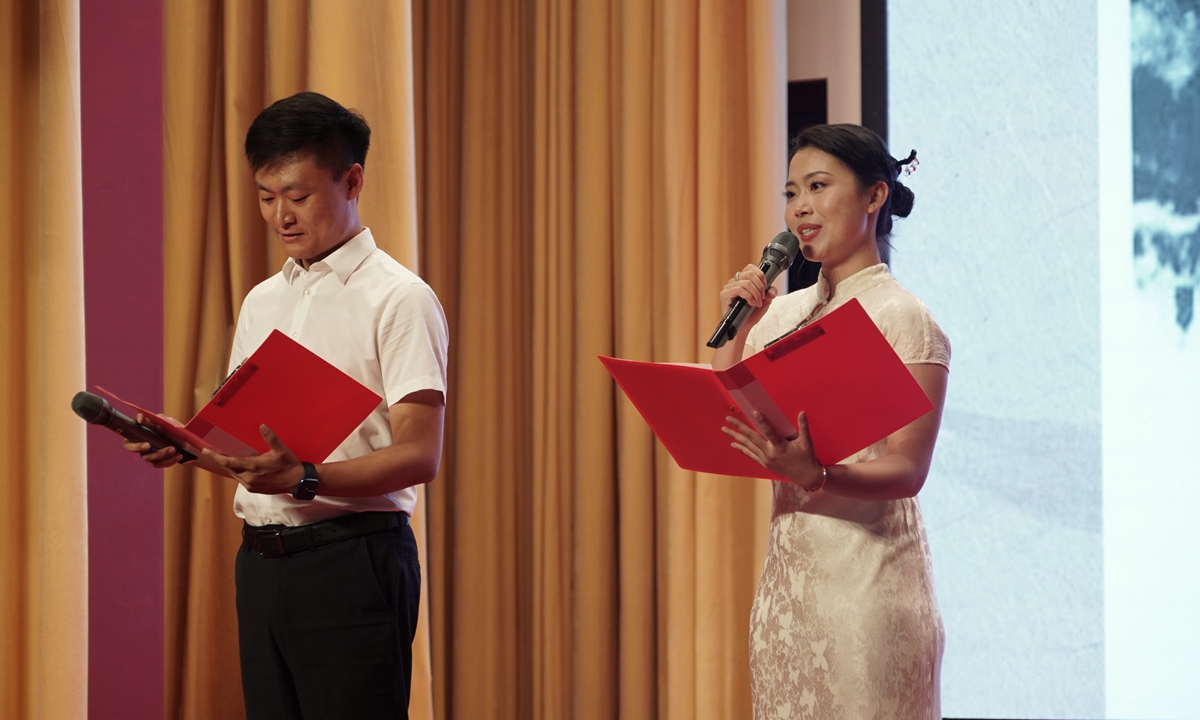
Delegates recite Tagore's poems at the commemoration event "100th Anniversary of Tagore's Visit to China" at the Shanxi Jinshang Cultural Museum in Taiyuan, North China's Shanxi Province, on August 3, 2024.
In Shanxi, Tagore had extensive and in-depth exchanges and discussions with local intellectuals, and expressed his deep friendship with the Chinese people and his recognition and cherishing of the cultural relations between China and India in his speeches and literary works, Liu said."His visit evoked enthusiastic responses in China's intellectual circles at that time, and was of symbolic significance in the historical process of exchanges and mutual learning between Chinese and Indian civilizations," Liu noted.
Delegates at the event recited Tagore's poems, immersing the audience in the poet's life from a century ago through his verses.
Through their "dialogue" with Tagore, scholars had in-depth discussions on literature and art, sharing their views on the importance and value of literature and friendship.
Global Times
